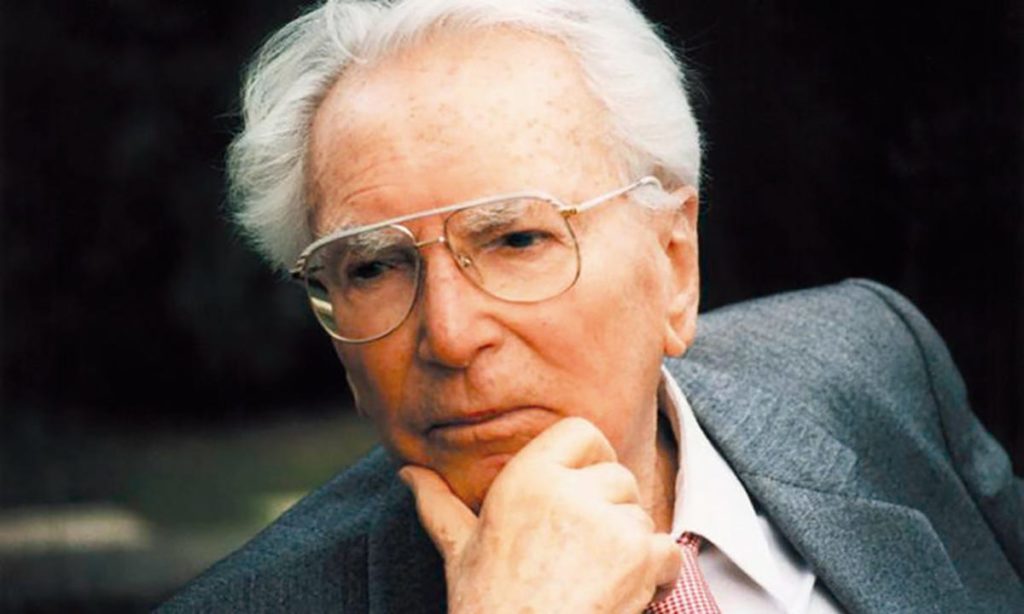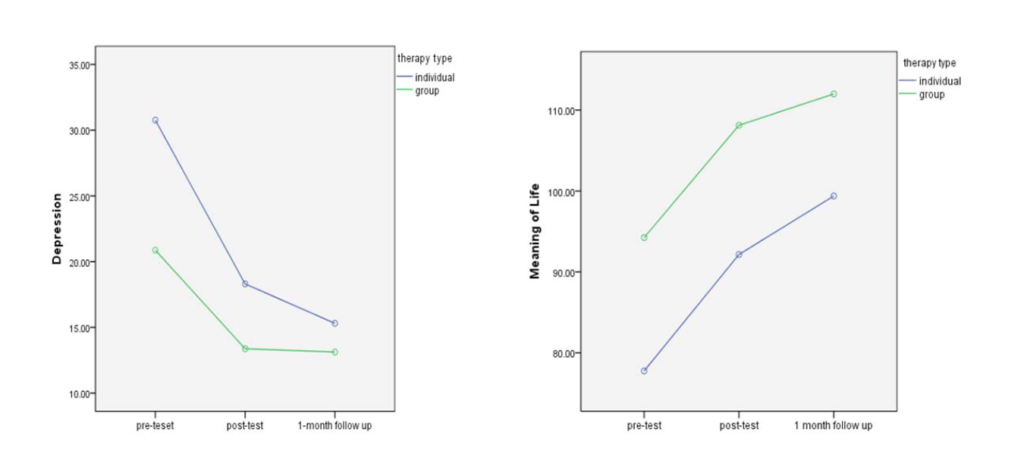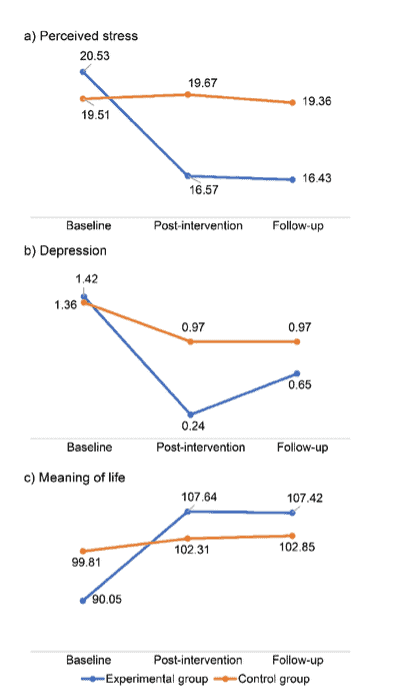
Nerine Gregersen
(MBBCh, MSc Med (Genetic Counselling), Cert (Medical Genetics), Diplomate in Logotherapy, Certified Dare to Lead™ Facilitator, Supervision Skills training, RYT200- trained yoga teacher)
Going through hardship and “suffering” makes us somehow appreciate the achievement, success and the end result even more. Actually, it makes us appreciate life, and we’re grateful for the challenge that was put in front of us.
However, sometimes that obstacle might be too high for some of us, and instead of going over it, we get stuck at the bottom of it. Our meaning, purpose and will seemingly abandon us.
Logotherapy combines physical, psychological, and spiritual aspects of an individual, and focuses on the future through search for meaning and purpose.
In today’s world many of us end up wandering aimlessly, and what we need is to understand our meaning and purpose in life.
What is Logotherapy?
Logotherapy is a meaning-centred form of psychological therapy and life philosophy. We heal through finding meaning.
Discovery of meaning changes our perspective on the past, present and future. We learn, see possibilities and solutions, and have a reason to move forward.
Meaning can be discovered from our actions, experiences and the attitudes we choose in any situation. This is called the Meaning Triangle, or the 3 Avenues to Meaning.[1,2]
Logotherapy is based on three foundational assumptions, called tenets: Freedom of Will, the Will to Meaning and Meaning in Life.[1,2]
Humans have Freedom of Will
Although we may be limited by personal or external circumstances, we always have the freedom to choose.
Choosing one’s attitude in any situation is the one freedom that can never be removed. Free will comes with responsibility, and there is power in making personally meaningful choices.
Humans are motivated by the Will to Meaning
We strive to seek the meaning that already exists. Meaning is unique to the person and the moment. It cannot be manufactured and has to be discerned in every situation and moment-to-moment.
There is Meaning in Life
This Ultimate Meaning always exists and, therefore, life is meaningful under all circumstances, even in suffering. This makes logotherapy positively focused.
What is the difference between Logotherapy and other types of psychotherapies?
Logotherapy embraces the three-dimensional aspect of humans. Humans are recognised as having
- body (soma)
- emotional-intellectual aspect (psyche)
- spirit, or human essence (noös, or noetic dimension)[2]
The human spirit contains unique abilities — intuition, conscience, creativity, understanding of values, beauty, love, mortality, purpose, the will to seek meaning, humour, self-awareness and the ability to self-transcend.[2]
The essential spirit of every person is assumed to always be intact, and can therefore always be accessed for healing.
Logotherapy holds that to focus only on the body and/or psyche in therapy reduces or distorts the human in some way.
Most forms of psychotherapy focus on trying to understand the mind and emotions, and then working with these for a better outcome.
RELATED — Types of therapy: which one is right for you? (Part 1)
Logotherapy is different because it taps into the human essence to effect change in the body, mind and emotions.
History and origin of Logotherapy
Viktor Emil Frankl (1905 – 1997) developed the principles of logotherapy. He was a Viennese psychiatrist and neurologist, and Holocaust survivor.
Frankl came from a middle class Jewish family and had a classical education. He was fascinated by philosophy, even earning a PhD in the subject in 1949.[2]

His principles of logotherapy were influenced by the Greeks (Socrates, Plato and Aristotle), German humanists (Kant and Hegel), and some of the existentialists (Kierkegaard, Nietzsche and Heidegger, in particular).[2]
The word logotherapy is derived from the Greek word ‘logos’, which Frankl translated as ‘meaning’, in the sense of being the centre of life.[1,2]
He used logotherapy for his psychiatric patients before WWII, but it was during his time in the concentration camps that his theories were powerfully demonstrated to apply to all humans.
His most famous book, Man’s Search for Meaning, is an account of his experiences and observations in the concentration camps, and also provides a short introduction to the principles of logotherapy.[1]
Logotherapy is sometimes called the “Third Viennese School of Psychotherapy” or the “third force” in psychotherapy (USA). The “First Viennese School” and “Second Viennese School” refer to Sigmund Freud’s psychoanalysis, and Alfred Adler’s individual psychology, respectively.
Freud believed that humans are driven by the “will to pleasure”, and Adler believed in the “will to power”. Frankl corresponded with Freud and studied under Adler and he greatly admired their contributions to the field of psychotherapy.[1]
Frankl eventually went his own way because he felt that preceding theories did not adequately represent the totality of being human.
Notable individuals
Joseph B. Fabry (1909 – 1999) was notable in spreading logotherapy from Europe to the rest of the world.
Fabry, also Viennese, immigrated to America after WWII. He established the Viktor Frankl Institute of Logotherapy in the USA, and the publication The International Forum of Logotherapy.
Both continue Frankl’s work, to date. Frankl said that Fabry was able to “popularise logotherapy without vulgarising it”, and to further its application.[3]
Austrian psychiatrist, Elisabeth Lukas (b.1942), requires special mention. She was Frankl’s foremost pupil, an exceptional logotherapist, and is the author of more than 30 books.
Notable modern logotherapists who are also furthering research in the field are Alexander Batthyány (Vienna) and Stefan Schulenberg (USA).
Alexander Vesely, Viktor Frankl’s grandson, is an award winning filmmaker and psychotherapist. HIs documentary, Viktor & I, won several awards in 2010. He is associated with Noetic Films, and several short film clips of Viktor Frankl talking about various subjects related to meaning and logotherapy can be found on their website.
Outside academia, American inspirational speaker, Simon Sinek (b.1973), is influenced by the principles of logotherapy, especially regarding the importance of purpose.
This is reflected in the title of one of his books, Start with Why.
Research on Logotherapy
More than 1,700 papers on logotherapy have been published since 1924, and over 800 studies have been conducted and published.[4,5]
Initial research into logotherapy was subjective, focusing on reporting case histories. After 1964, research became more objective and validated tools emerged to measure study outcomes and the underlying principles of logotherapy.
The most popular study test is the Purpose in Life Test (PIL), and its revised versions, followed by the Life Purpose Questionnaire (LPQ). A less studied test is the Seeking of Noetic Goals Test (SONG).
Since the mid 1980’s, research has focused on the clinical efficacy of logotherapy. For example, studies have been in the areas of:
- mental health
- substance abuse
- end of life care
- PTSD
- after large scale disasters
- grief
- for patients with physical conditions (cancer, physical disability, infertility, chronic pain),
and for developing resilience and psychological protection (eg. in suicide ideation, bullying).
Health benefits of Logotherapy
When we value ourselves and see our lives as meaningful, we are more likely to take steps towards ensuring health and wellbeing.
Logotherapy/meaning-orientation:
- is empowering
- clarifies personal hierarchy of values and life meaning for guiding choices
- restores a sense of control and wellbeing
- is action oriented
- is present and future focused
- is strengths-focused
- reduces symptoms of despair (aggression, depression and addiction)
- reduces symptoms of despondency (pain, guilt, grief)
- reduces anxiety
- develops resilience and psychological protection.
Mental health
A study in Korean immigrant women with depression (2012) showed significant improvement in depression and meaning in life after a 6 week written group logotherapy intervention, compared with the control group.
The effects were sustained at 1-month follow-up, and were independent of the use of medication.[6]

Studying the elderly in nursing homes (2014) showed that higher meaning correlated with a greater sense of hope and quality of life, and lower scores on depression and anxiety.[7]
Substance abuse
A 2012 study of American college students reported that higher meaning scores correlated with lower alcohol use (men and women) and less depression (women).[8]
An Iranian study (2021) in 30 males with addiction disorder showed success using an 8-week group logotherapy intervention.
It reported statistically significantly reduced drug craving and relapse scores in the intervention group, compared with the control group.
In the treatment vs control groups, post-test craving scores ±SD (standard deviation) were 36.46±6.77 and 49.06±12.95, respectively, and post-test relapse scores ±SD were 67.53±5.80 and 102.45±1.69, respectively.[9]
Physical conditions
In Greece, a study of 511 people with physical disability (quadriplegia, paraplegia, multiple sclerosis, amputation, poliomyelitis, hemiplegia) showed that those with greater meaning in life had less depression and greater positive adaptation to their disabilities.[10]

Source: Jang, S. Effects of an Existential Nursing Intervention for College Students in the COVID-19 Pandemic Situation. (2021)
A recent study in a group of breast cancer survivors (2022) showed that a combination of logotherapy and nutrition counselling over 8 weeks significantly reduced depression and anxiety with improvement in body measurements and food intake, compared with nutrition counselling alone.[11]
RELATED — Introduction to: Depression
Resilience and wellbeing
In Canadian adolescents (2013), meaningful extracurricular activities lowered suicide ideation, depression and risk behaviour, and improved self-esteem.[12]
In American high school students (2014), a study reported that higher meaning in life significantly reduced the chance of bullying victimisation and suicidal ideation.[13]
Side effects and possible risks
Logotherapy is used as an intervention by itself, but can also be added to any other treatment modality, including medication.
There are no risks associated with logotherapy, but barriers to engagement may exist.
Aside from LogoArt®, logotherapy is mostly dialogue based. LogoArt® Meaning-Centered Art Therapy was developed by Marianne da Silva Prado, and combines art therapy with logotherapy.
Individuals with extreme untreated psychosis and moderate to severe intellectual disability have limited ability to participate maximally with conventional logotherapy. Further, as with any other therapy, the participant’s willingness to engage is key.
However, creative and unique solutions to even these barriers exist. Once successfully medicated, individuals with mental diagnoses like schizophrenia or bipolar disorder, can engage with, and benefit from, logotherapy.
Technology allows for individuals with limited speech ability to communicate in ways not previously possible. Non-dialogue based exercises like writing or creating art have also been used for meaning discovery.
Related Questions
1. Is logotherapy still used today?
Logotherapy is flourishing, and is being applied to more areas than ever before.
It redirects us to personal meaning and is always relevant, especially in times of change and challenge.
2. What is the controversy with logotherapy?
Some say that logotherapists impose meaning on the client.
However, each client is responsible for discerning their own meaning in any given situation. The therapist facilitates, not dictates, the process.
3. What is the success rate of logotherapy?
In general, logotherapy has good success rates. Actual figures depend on the study.
If you have any questions about logotherapy, and would like to know more, please feel free to ask in the comments below.
Nerine is a qualified medical doctor, who practiced as a paediatrician and clinical geneticist, and has completed training in Logotherapy, earning the Diplomate credential from the Viktor Frankl Institute of Logotherapy (USA) in 2017.
References
(1) Frankl, V.E. (2004). Man’s Search for Meaning. Random House.
(2) Graber, A.V. (2004). Viktor Frankl’s Logotherapy. Method of Choice in Ecumenical Pastoral Psychology. Wyndham Hall Press.
(3) Fabry, J.B. (2013). The Pursuit of Meaning. Viktor Frankl, Logotherapy, and Life. Purpose Research, LLC.
(4) Thir, M., & Batthyány, A. (2016). The state of empirical research on logotherapy and existential analysis. In Logotherapy and Existential Analysis: Proceedings of the Viktor Frankl Institute Vienna, Volume 1 (pp. 53-74). Springer International Publishing.
(5) Schulenberg, S. E., Hutzell, R. R., Nassif, C., & Rogina, J. M. (2008). Logotherapy for clinical practice. Psychotherapy: Theory, Research, Practice, Training, 45(4), 447. Retrieved from https://www.blogotherapy.co.il/wp-content/uploads/2020/07/pst-Logo-for-Clinical-Practice-2008.pdf
(6) Bernstein, K. S., Cho, S., Cho, S., & Roh, S. (2012). Logo-autobiography and its effectiveness on depressed Korean immigrant women: A replication study. Journal of Nursing Education and Practice, 3(6), 51-60. Retrieved from https://www.researchgate.net/profile/Sunhee-Cho-3/publication/314558789_Logo-autobiography_and_its_effectiveness_on_depressed_Korean_immigrant_women_A_replication_study/links/59a3bd1c0f7e9b0fb8b2d0a1/Logo-autobiography-and-its-effectiveness-on-depressed-Korean-immigrant-women-A-replication-study.pdf
(7) Haugan, G. (2014). Meaning‐in‐life in nursing‐home patients: A correlate with physical and emotional symptoms. Journal of Clinical Nursing, 23(7-8), 1030-1043.
(8) Schnetzer, L. W., Schulenberg, S. E., & Buchanan, E. M. (2013). Differential associations among alcohol use, depression and perceived life meaning in male and female college students. Journal of Substance use, 18(4), 311-319.
(9) Mozarmpour, M., & Golestanipour, M. (2021). Effectiveness of Logotherapy Intervention Program in Reducing Drug Cravings and Preventing Relapse among Males with Substance Dependence in Ahvaz. International Journal of Health Studies, 7(3), 11-15.
(10) Psarra, E., & Kleftaras, G. (2013). Adaptation to physical disabilities: The role of meaning in life and depression. The European Journal of counselling psychology, 2(1).
(11) Raji Lahiji, M., Sajadian, A., Haghighat, S., Zarrati, M., Dareini, H., Raji Lahiji, M., & Razmpoosh, E. (2022). Effectiveness of logotherapy and nutrition counseling on psychological status, quality of life, and dietary intake among breast cancer survivors with depressive disorder: a randomized clinical trial. Supportive Care in Cancer, 30(10), 7997-8009.
(12) Armstrong, L. L., & Manion, I. G. (2015). Meaningful youth engagement as a protective factor for youth suicidal ideation. Journal of Research on Adolescence, 25(1), 20-27.
(13) Henry, K. L., Lovegrove, P. J., Steger, M. F., Chen, P. Y., Cigularov, K. P., & Tomazic, R. G. (2014). The potential role of meaning in life in the relationship between bullying victimization and suicidal ideation. Journal of youth and adolescence, 43, 221-232. Retreived from https://www.researchgate.net/profile/Konstantin-Cigularov/publication/236929449_The_Potential_Role_of_Meaning_in_Life_in_the_Relationship_Between_Bullying_Victimization_and_Suicidal_Ideation/links/558a9cc108aeae8413bd3431/The-Potential-Role-of-Meaning-in-Life-in-the-Relationship-Between-Bullying-Victimization-and-Suicidal-Ideation.pdf
(14) Steger, M. F., Oishi, S., & Kesebir, S. (2011). Is a life without meaning satisfying? The moderating role of the search for meaning in satisfaction with life judgments. The Journal of Positive Psychology, 6(3), 173-180.
(15) Doğan, T., Sapmaz, F., Tel, F. D., Sapmaz, S., & Temizel, S. (2012). Meaning in life and subjective well-being among Turkish university students. Procedia-Social and Behavioral Sciences, 55, 612-617. https://www.sciencedirect.com/science/article/pii/S1877042812040050/pdf?md5=fc3c35cd2717da2829bc6dd8c57ace7a&pid=1-s2.0-S1877042812040050-main.pdf






